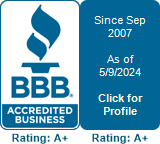Entertainment, Tax Reform, and Your Company's Bottom Line
- By Admin
- •
- 30 Aug, 2018
- •

Every business has to pay for at least some meals and entertainment as part of getting or transacting business. Being able to deduct these often-necessary business expenses is part of many companies' financial plans. But recent changes in the tax code made some surprising alterations to what you can expect to get as a tax break.
So how can your business adjust for the new circumstances? Here's a short guide to help you decide.
The Impact of Tax Reform
In the past, entertainment expenses (like taking a client to a ball game) were often fully deductible as long as the entertainment was either directly related
or associated with
the conduct of business. Meals were generally limited to 50% deductible on your taxes, although there were some exceptions that garnered full tax breaks.
The Tax Cut and Jobs Act made some big changes. Starting in 2018, entertainment expenses are generally not deductible at all. And some meals that used to be fully deductible are now only 50% deductible. This could have a big impact on businesses that spend a lot of time wooing clients or vendors at off-site locations.
The Exceptions
Of course, there are some important caveats written into these changes. Any entertainment that is considered part of an employee's compensation and included in their gross wages is 100% deductible. Similarly, expenses for recreational or social activities that are primarily for the benefit of employees are fully deductible. Business meetings involving various boards of trade or business leagues can be deducted as they were before.
There is also some remaining ambiguity about how to differentiate between a meal - which is likely to remain at least partially deductible - and entertainment - which is likely not deductible anymore. For instance, it's unclear in current wording whether or not a business meal with a client is equally deductible as a business meal with an employee.
The IRS is still expected to provide more guidance on this subject, so stay in contact with your accountant to receive additional information as the year progresses.
How You Can Adjust
Given these new limitations, what can you do if you're a business that relies on providing meals and entertainment during the course of your trade?
For one thing, stick with business expenses that are deductible when treating clients. Since most business-related meals remain at least 50% deductible, you may want to make interesting meal venues a priority rather than other entertainment locations. You can also fully deduct food provided at a marketing event or presentation.
If you currently use a reimbursement arrangement for employee expenses, you may want to consider moving to a non-accountable plan that's included in employee wages (and therefore generally fully deductible). This would be a big decision, so consult with your accountant for more information about accountable and nonaccountable plans.
If your company benefited significantly from the tax deduction for entertainment, you may need to adjust your budget plans to compensate for the loss. Work with your accountant to determine what your tax liability would have been in 2017 if entertainment expenses were not included, then plan for a similar outcome in the current year.
Conduct an audit of reimbursed or company-paid entertainment receipts to determine where you should focus the company's money when it comes to nondeductible expenses.
While several aspects of the TCJA have made a big splash among businesses and individuals, quieter changes to meals and entertainment may have a big impact on your profitability. To find out more about what you can expect when tax time comes, talk with the business tax pros at Williams & Associates Tax Services today.
One vital aspect of a business that demands careful attention is payroll management. Learn why hiring a certified accountant can improve operations.
Turning to a full-service accounting firm to outsource key CFO responsibilities might just be the solution you're looking for. Read to learn more.
Many businesses might make mistakes when filing their tax returns. Learn about a few examples of mistakes and tips on how to avoid the mistakes.
Proper accounting and bookkeeping are vital to the survival of an online business. Read this blog to learn six tips that will make these things easier.
Rather than hiding from your bookkeeping be proactive with it in order to avoid problems. Learn why proper bookkeeping matters more than you thought.
For a small- or medium-sized business owner, taxes may be frustrating. Luckily, you can lower your tax burden. Learn how in this blog.
Every business needs one or more individuals who manage and guide its finances. Learn about the details of what each accounting role does.
Running a business requires a lot of work, and much of that work involves finances. Check out these three reasons you may need forensic financial services.
Errors in bookkeeping can have a large impact on your finances. Read on to learn five common errors and how to safely avoid them in the future.











